kottke.org posts about best of
Magazine covers, movie posters, and book covers all have the same basic job, so it seemed proper to group these lists together: 50 [Book] Covers for 2013, The 20 best magazine covers of 2013, The 50 Best Posters Of 2013, Top [Magazine] Covers 2013, The Best Book Covers of 2013, The 30 Best Movie Posters of 2013, Best Book Covers of 2013. Lots of great work here. I still can’t figure out whether I love or hate this cover of W with George Clooney on it:
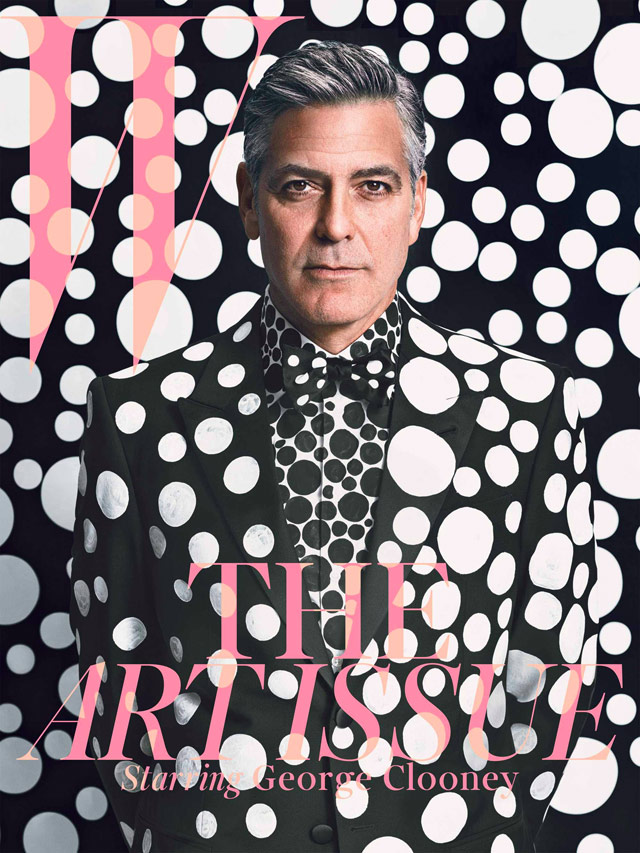
This morning, Time magazine named Pope Francis their Person of the Year.
He took the name of a humble saint and then called for a church of healing. The first non-European pope in 1,200 years is poised to transform a place that measures change by the century.
On Monday, The New Yorker’s John Cassidy argued that Edward Snowden deserved the honor.
According to Time, its award, which will be bestowed on Wednesday, goes to the person who, in the opinion of the magazine’s editors, had the most influence on the news. By this metric, it’s no contest. In downloading thousands of files from the computers of the electronic spying agency and handing them over to journalists like Glenn Greenwald, Laura Poitras, and Barton Gellman, Snowden unleashed a torrent of news stories that began in May, when the Guardian and the Washington Post published a series of articles about the N.S.A.’s surveillance activities. Seven months later, the gusher is still open. Just last week, we learned that the agency is tracking the whereabouts of hundreds of millions of cell phones, gathering nearly five billion records a day.
Agreed.
In the early 1960s, French director Jean-Luc Godard put together a list of the Ten Best American Sound Films. The list included:
The Great Dictator (Charles Chaplin)
Vertigo (Alfred Hitchcock)
Singin’ in the Rain (Kelly-Donen)
The Lady from Shanghai (Orson Welles)
The list appeared as one of a series in Cahiers du Cinema, the influential French film magazine. (via @DavidGrann)
From Pitchfork, a list of the best album covers from 2013. My favorite is this one from Tyler, The Creator, which looks more or less like the opposite of a rap album.
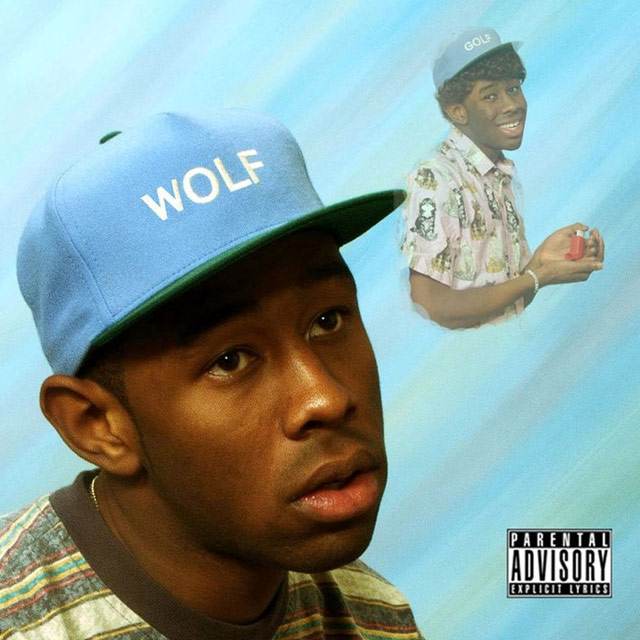
I also liked Michael Cina’s cover for Fort Romeau (which he adapted from his very fetching art) and of course Yeezus, which is this year’s unignorable album in every way. (via @pieratt)
In celebration of his 44th birthday, Jay Z ranked his solo albums:
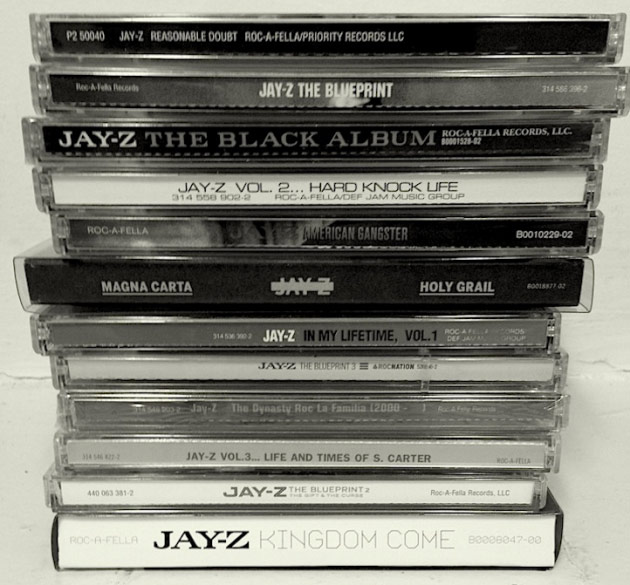
Here’s the annotated list:
1. Reasonable Doubt (Classic)
2. The Blueprint (Classic)
3. The Black Album (Classic)
4. Vol. 2 (Classic)
5. American Gangster (4 1/2, cohesive)
6. Magna Carta (Fuckwit, Tom Ford, Oceans, Beach, On the Run, Grail)
7. Vol. 1 (Sunshine kills this album… fuck… Streets, Where I’m from, You Must Love Me…)
8. BP3 (Sorry critics, it’s good. Empire (Gave Frank a run for his money))
9. Dynasty (Intro alone…)
10. Vol. 3 (Pimp C verse alone… oh, So Ghetto)
11. BP2 (Too many songs. Fucking Guru and Hip Hop, ha)
12. Kingdom Come (First game back, don’t shoot me)
(via @anildash)

As I said last year, the photos are always my favorite end-of-the-year media to check out. It’s only early December, but a few media outlets are out of the gate already with their year-end lists.
Best photos of the year 2013 from Reuters.
The Top 10 Photos of 2013 from Time.
2013 Pictures of the Year from Agence France Presse.
The 80 Most Powerful Photos of 2013 from The Roosevelts.
Las mejores fotos del 2013 from Yahoo En Español.
The 45 Most Powerful Photos Of 2013 from BuzzFeed.
2013: The Year in Photos from In Focus. Here are parts two and three.
2013 Year in Pictures from Big Picture. Here are parts two and three.
Year in Focus 2013 from Getty Images.
Year in Photos 2013 from The Wall Street Journal.
The Year in Pictures from The New York Times.
Do you have a list for this list? Send it along!
In a masterfully edited video, David Ehrlich presents his 25 favorite films of 2013.
Fantastic. This video makes me want to stop what I’m doing and watch movies for a week. It’s a good year for it apparently…both Tyler Cowen and Bruce Handy argue that 2013 is an exceptional year for movies. I’m still fond of 1999… (via @brillhart)
In 1898, an editor named Clement K. Shorter made a list of the 100 best novels (with an additional limit of one/author).
1. Don Quixote - 1604 - Miguel de Cervantes
2. The Holy War - 1682 - John Bunyan
3. Gil Blas - 1715 - Alain René le Sage
4. Robinson Crusoe - 1719 - Daniel Defoe
5. Gulliver’s Travels - 1726 - Jonathan Swift
6. Roderick Random - 1748 - Tobias Smollett
7. Clarissa - 1749 - Samuel Richardson
8. Tom Jones - 1749 - Henry Fielding
9. Candide - 1756 - Françoise de Voltaire
10. Rasselas - 1759 - Samuel Johnson
So much on there I’ve never even heard of. Compare this list with that of the best novels of the 20th century…how many of those novels and authors will readers be scratching their heads over in 2113? See also a contemporary list of the best books from before 1900. (via mr)
In Focus has a selection of winning photos from Nikon’s Small World Photomicrography Competition. The award for most terrifying goes to Dimitri Seeboruth for his shot of a worker ant:

I, for one, welcome our new insect overlords.
The Atlantic asked a group of historians, scientists, and engineers to rank the 50 greatest innovations since the invention of the wheel. Here they are.
21. Nuclear fission, 1939
Gave humans new power for destruction, and creation
22. The green revolution, mid-20th century
Combining technologies like synthetic fertilizers (No. 11) and scientific plant breeding (No. 38) hugely increased the world’s food output. Norman Borlaug, the agricultural economist who devised this approach, has been credited with saving more than 1 billion people from starvation.
23. The sextant, 1757
It made maps out of stars.
Sadly, most infographics these days look like this, functioning as a cheap and easy way to gussy up numbers. But when done properly, infographics are very effective in communicating a lot of information in a short period of time and can help you see data in new ways. In The Best American Infographics 2013, Gareth Cook collects some of the best ones from over the past year. Wired has a look at some of the selections.
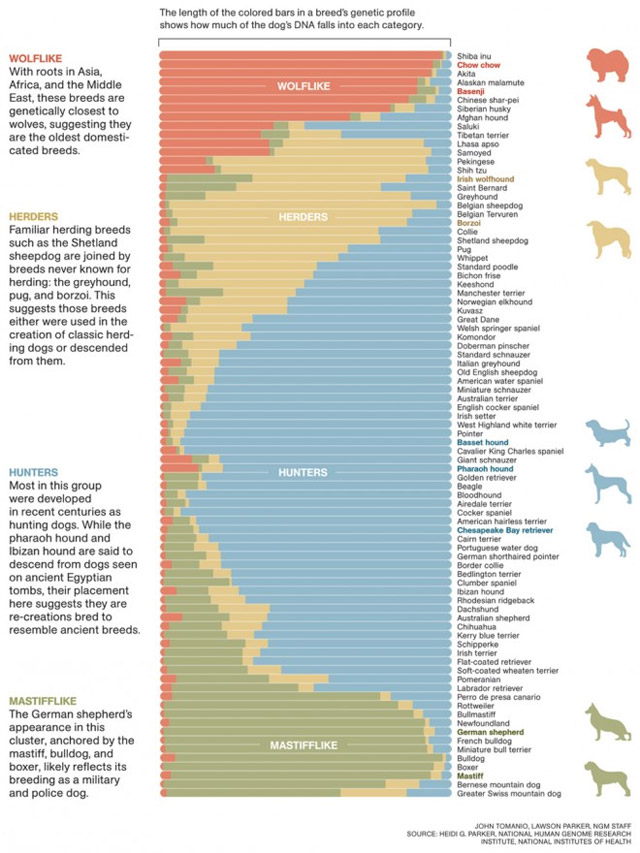
Another excellent link from Quora’s weekly newsletter: What is the best sacrifice in the history of chess? A game played in 1934 featured the sacrifice of the queen & both rooks and was over so quickly (14 moves) that it’s referred to as The Peruvian Immortal. I found it easier to follow the game by watching it:
This compilation of videos shot with Vine is surprisingly good and a nice illustration of what Mat Honan is getting at in Why Vine Just Won’t Die.
Vine started from scratch. It built a ground up culture that feels loose, informal, and — frankly — really fucking weird. Moreover, most of what you see there feels very of-the-moment. Sure, there’s plenty of artistry that goes into making six second loops, and there are volumes of videos with high production values. But far more common are Vines that serve as windows into what people are doing right now. Many of the most popular Vines appear to be completely off the cuff. They don’t have to be great or slick or well produced. In some ways, its better that they’re not, because it creates a lower threshold if you just want to, you know, share a video of your cat. They have something that trumps quality, which is authenticity.
That authenticity is driving a distinct emerging culture. One that stars people like Riff Raff and Tyler, the Creator, and an army of kids whose names you’ve never heard of but who can still generate hundreds of thousands of likes and re-Vines, and even large scale in-person meetups. It’s the triumph of the loop, yes, but it’s also the triumph of youth.
Take a moment to stroll through Vine’s “Popular Now” videos, and you’d have to be willfully ignorant to not notice that those on Vine are distinctly younger, distinctly blacker, and distinctly, well, gayer than society in general. In short, it’s cool. It’s hip. It’s a scene. If Instagram is an art museum, Vine is a block party.
I was going to make a joke about this being what TV is going to look like in five years, but I think you could put 30 minutes of this on MTV2 or whatever, with six-second Vine-style ads placed seamlessly in the mix, and you’d have yourself a hit show. (via ★interesting)
Compiled from a bunch of different sources, here’s an attempt at an exhaustive list of movies that Stanley Kubrick liked. Among them:
Citizen Kane
The Godfather
Metropolis
One Flew Over the Cuckoo’s Nest
Harold and Maude
Close Encounters of the Third Kind
By far the weirdest entry on the list is White Men Can’t Jump. Then again, Terrence Malick loves Zoolander and David Foster Wallace once listed a Tom Clancy novel as a favorite. (via @DavidGrann)
Lena Dunham shares her fifteen favorite Criterion films, saying she’s embarrassed that “so many of these films are in English, but I just love speaking English”.
The Tampa Bay Times and The Center for Investigative Reporting spent a year investigating bad charities and this is what they found.
The worst charity in America operates from a metal warehouse behind a gas station in Holiday.
Every year, Kids Wish Network raises millions of dollars in donations in the name of dying children and their families.
Every year, it spends less than 3 cents on the dollar helping kids.
Most of the rest gets diverted to enrich the charity’s operators and the for-profit companies Kids Wish hires to drum up donations.
In the past decade alone, Kids Wish has channeled nearly $110 million donated for sick children to its corporate solicitors. An additional $4.8 million has gone to pay the charity’s founder and his own consulting firms.
No charity in the nation has siphoned more money away from the needy over a longer period of time.
But Kids Wish is not an isolated case, a yearlong investigation by the Tampa Bay Times and The Center for Investigative Reporting has found.
Using state and federal records, the Times and CIR identified nearly 6,000 charities that have chosen to pay for-profit companies to raise their donations.
Then reporters took an unprecedented look back to zero in on the 50 worst — based on the money they diverted to boiler room operators and other solicitors over a decade.
These nonprofits adopt popular causes or mimic well-known charity names that fool donors. Then they rake in cash, year after year.
The nation’s 50 worst charities have paid their solicitors nearly $1 billion over the past 10 years that could have gone to charitable works.
Despicable. And a reminder that before you give, you should check on a site like Charity Navigator or GiveWell for organizations where a sizable portion of your contribution is going to the actual cause. For instance, the aforementioned Kids Wish charity currently has a “donor advisory” notice on their Charity Navigator page. (via @ptak)
The Writers Guild of America recently selected their list of the 101 best written TV series of all time. Here are the top 20:
1 The Sopranos
2 Seinfeld
3 The Twilight Zone
4 All in the Family
5 M*A*S*H
6 The Mary Tyler Moore Show
7 Mad Men
8 Cheers
9 The Wire
10 The West Wing
11 The Simpsons
12 I Love Lucy
13 Breaking Bad
14 The Dick Van Dyke Show
15 Hill Street Blues
16 Arrested Development
17 The Daily Show with Jon Stewart
18 Six Feet Under
19 Taxi
20 The Larry Sanders Show
The full list is here in PDF form. Lost above Deadwood? And Homicide? And several other more? Maybe they ignored everything after the first couple seasons?
Stephen Coles of Typographica says that 2012 was “a strong year” for new typefaces. He asked dozens of designers and font makers to nominate their favorite 2012 typefaces and here’s what they had to say.
The independent foundry has also cemented its place as the new foundation of the industry. Most of this year’s selections are from very small shops, several of which are entirely new to the market. It’s also significant that, in addition to offering their fonts through retailers like FontShop, MyFonts, and the newly revived Fonts.com, most of these indie foundries now sell directly to customers through their own sites. In some cases they have eschewed outside distribution altogether. The “majors” have not simply laid down, however. Monotype, Linotype, Font Bureau, FontFont, and H&FJ are all represented in this year’s list, each with releases that are remarkably characteristic of their respective brands.
(via df)
Matt Kahn is reading every bestselling novel from each of the past 100 years.
For this blog I plan, among other things, to read and review every novel to reach the number one spot on Publishers Weekly annual bestsellers list, starting in 1913. Beyond just a book review, I’m going to provide some information on the authors and the time at which these books were written in an attempt to figure out just what made these particular books popular at that particular time.
A few things. The Silmarillion?! Was the top selling book in 1977? John Grisham appears on the list 11 different times; the guy is a machine. And it’s interesting to see when popularity and critical acclaim part ways, when the Roths, le Carrés, and E.L. Doctorows give way to the Clancys, Grishams, and Dan Browns.
Photos from the shortlist of winners of the 2013 Sony World Photography Awards. Some stunning shots in there.
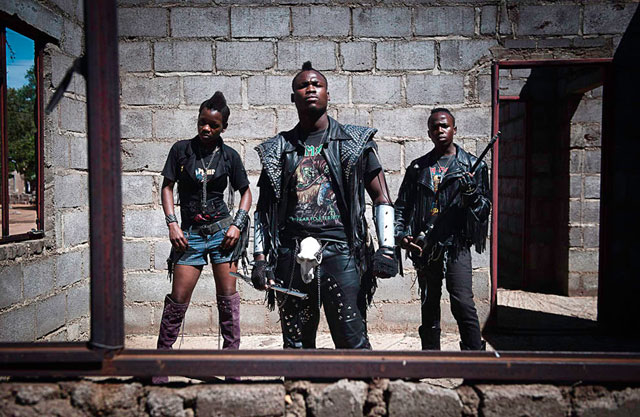
Edith, Hellrider, and Dadmonster pose for a photograph. In Botswana, heavy metal music has landed. Metal groups are now performing in nightclubs, concerts, festivals. The ranks of their fans have expanded dramatically. These fans wear black leather pants and jackets, studded belts, boots and cowboy hats. On their t-shirts stand out skulls, obscenities, historical covers of hard-rock groups popular in the seventies and eighties, such as Iron Maiden, Metallica, and AC/DC. They have created their own style, inspired by classic metal symbolism, but also borrowing heavily from the iconography of western films and the traditional rural world of Botswana. Their nicknames, Gunsmoke, Rockfather, Carrott Warmachine, Hellrider, Hardcore, Dignified Queen, may appear subversive and disturbing as their clothing, but they are peaceful and gentle. “We like to get dressed,, drink meet friends and feel free , this music is so powerful . We are lucky to live in a country tolerant and open” argues one of the leaders. A precious rarity for Africa.
Botswanian heavy metal fans and other great selections from the 2013 Sony World Photography Awards
Conor Friedersdorf’s annual round-up of the best non-fiction journalism is one of the best best-ofs out there…and the 2012 edition is no exception.
There are, of course, worthy pieces of writing and reporting that escaped my attention in 2012, but I can assure you that all of the 102 stories listed below deserve wider attention-as do the authors of these stories. The featured bylines are linked to the authors’ Byliner writer pages, which makes it easy to discover and read more of their excellent work. The stories are listed alphabetically by writer.
Gird your loins, Instapaper…so much good stuff to save here.
Martyn Cornell took issue with First We Feast’s list of the 20 most influential beers of all time and came up with his own list.
I mean, Bear Republic Hop Rod Rye is more influential in the history of beer than Bass Pale Ale or Barclay Perkins porter? Don’t make me weep. Allagash White trumps Hoegaarden and Schneider Weisse? (You may not like Hoegaarden or Schneider Weisse, but I hope you won’t try to deny their influence.) Gueuze, Saison and Kolsch are such important styles they deserve a representative each in a “most influential beers of all time” list, while IPA and porter are left out? I don’t think so. And the same goes for Schneider Aventinus: where are the hordes of Weissebockalikes? Sam Adams Utopias has influenced who, exactly? “Generic lager”? I see where you’re coming from, in that much of what has happened over the past 40 years in the beer world is a reaction against generic lager, but still … And I love London Pride, but it’s not even the third most influential beer that Fuller’s brews.
I like arguments about beer way more than drinking beer.
The NY Times asked a bunch of designers for their favorite book cover designs of 2012. Lots of nice work here.
This is one of my favorite annual lists: Regret the Error’s best (and worst) media errors and corrections. Here, for example, is the correction of the year from the Economist:
Correction: An earlier version of this article claimed that journalists at Bloomberg Businessweek could be disciplined for sipping a spritzer at work. This is not true. Sorry. We must have been drunk on the job.
And this one, from The Atlantic:
This post originally referred to Jennifer Grey as “Ferris Bueller’s sister.” As commenters have pointed out, her role alongside Swayze in Dirty Dancing is clearly the more relevant. We regret putting Baby in a corner.
And from Slate:
In an April 30 “TV Club,” Julia Turner misstated when Sally Draper ate the fish in Mad Men. It was before she saw the blow job.
The Atlantic has a similar list that casts a wider net outside of news media.
Rolling Stone asked a panel of experts (Busta Rhymes, Questlove, Rick Rubin, etc.) to vote on the best hip-songs ever produced. Here’s the list of their top 50 picks. Dre and Snoop’s Nuthin’ But a “G” Thang comes in at #6.
Climbing to Number Two on the singles chart in early 1993, “Nuthin’ But a ‘G’ Thang” made Dr. Dre the undisputed flag bearer of West Coast rap, while also ushering that genre into the pop mainstream. The song’s secret weapon was a relatively unknown pup named Snoop Doggy Dogg, whose verses are packed with effortless quotables. The song also introduced Dre’s masterful “G-Funk” style of production, which updated George Clinton’s legacy with slow, rubbery funk and layered synth hooks. “We made records during the crack era, where everything was hyped up, sped up and zoned out,” Chuck D explained. “Dre came with ’ “G” Thang’ and slowed the whole genre down. He took hip-hop from the crack era to the weed era.”
Listen to the entire list on Spotify. (via @gavinpurcell)
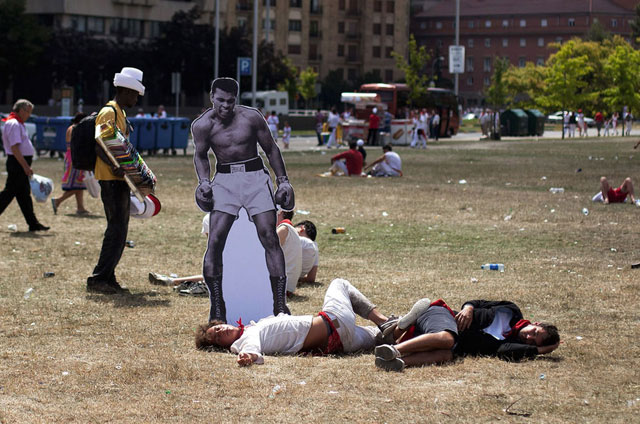
My favorite end-of-the-year lists are always the photos. Here are a few that have made their way online so far; I’ll be updating this list throughout the month so send me your lists.
2012: The Year in Photos from In Focus: Alan Taylor is still my favorite picker of photos. Here’s part two.
Best Photos of the Year 2012 from Reuters: Almost a hundred photos, heavy on hard news.
The 45 Most Powerful Images of 2012 from Buzzfeed: A wide-ranging selection of photos designed to tug at the heartstrings. See also The Best Animal Photos of 2012.
Pictures of the Year 2012 from AFP (Agence France-Presse): Not an official list but a nice selection of AFP photos nonetheless.
2012: The year in pictures from CNN: A good selection from the cable network.
Year in Photos 2012 from the Wall Street Journal: A massive selection of photos organized by month, region, category, and rating.
The best photographs of 2012 from The Guardian: Photographs and interviews with the photographers who took them.
Photos Of The Year 2012 from the Associated Press: Photos are great but the way they’re displayed isn’t.
2012 Year in Pictures from The Big Picture: About 150 images chosen from a number of different sources. Here’s part two and part three.
And so it begins, the end of the year lists. Love ‘em or hate ‘em, you’ve got to, um, … I’ve got nothing here. You either love them or hate them. Anyway, the NY Times’ list of the 100 notable books of the year is predictably solid and Timesish.
BRING UP THE BODIES. By Hilary Mantel. (Macrae/Holt, $28.) Mantel’s sequel to “Wolf Hall” traces the fall of Anne Boleyn, and makes the familiar story fascinating and suspenseful again.
BUILDING STORIES. By Chris Ware. (Pantheon, $50.) A big, sturdy box containing hard-bound volumes, pamphlets and a tabloid houses Ware’s demanding, melancholy and magnificent graphic novel about the inhabitants of a Chicago building.
I absolutely demolished Bring Up the Bodies over Thanksgiving break and loved it. I haven’t had a chance to sit down with Building Stories yet, but that massive and gorgeous collection is a steal at $28 from Amazon. And as far as lists go, another early favorite is Tyler Cowen’s list of his favorite non-fiction books of the year. Cowen is a demanding reader and I always find something worth reading there. (via @DavidGrann)
Newer posts
Older posts












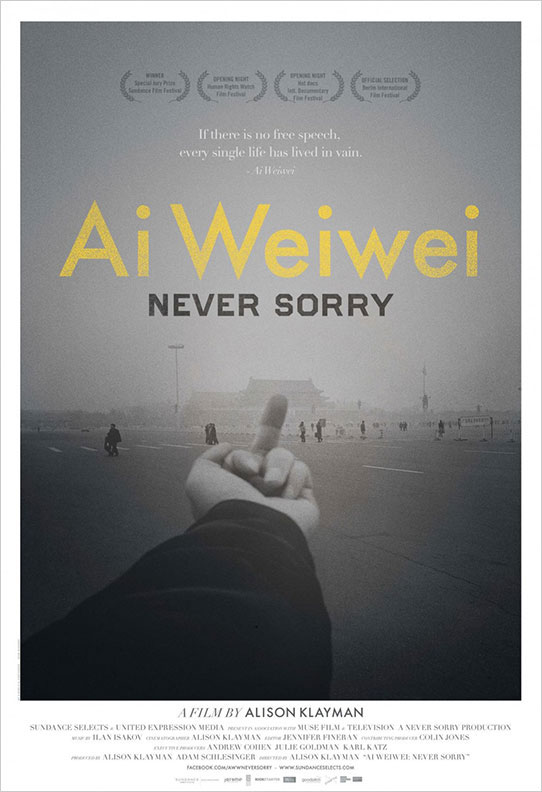
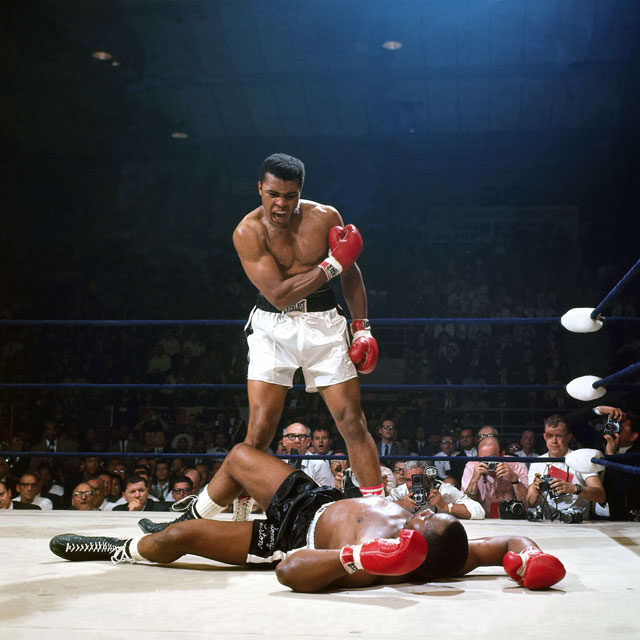
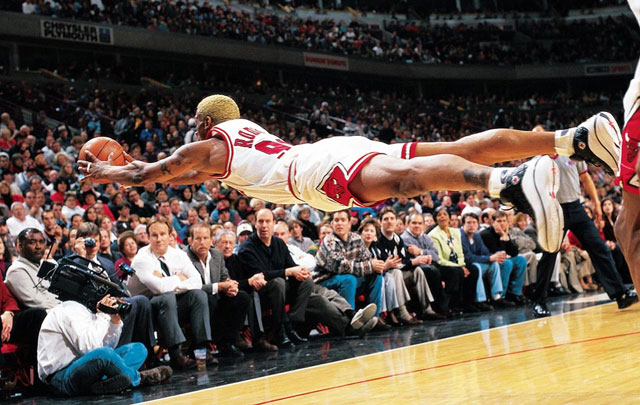

Stay Connected